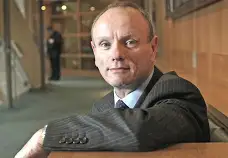This is a guest post by adjb
There was a fuss at a local school recently when some teenagers made a video of a dangerous stunt on a railway line and uploaded it to Youtube. That is (unfortunately) not hugely unusual in itself, but what was unusual was how this came to light: hours after it appeared, the parents of the Youtube account-holding boy were contacted by the police after they came across the video and got the account details from Google (Youtube’s owner).
My reaction to this was mixed. On the one hand, good – the boys got a stern talking-to, and the video was removed thus preventing the danger of copy-cat stunts. But on the other hand, yikes – it’s just so easy today for the police to discover things and pinpoint suspected miscreants with the aid of modern technology and helpful corporations who know a lot about us.
I have a similar reaction to recent media reports that the government is set to press ahead with plans to grant the State powers to acquire and store internet and email records. Although the story has grown legs in recent days, this is not news: the government’s Business Plan (PDF) of November 2010 included an item to “Develop and publish proposals for the storage and acquisition of internet and e-mail records” (presented, in true Orwellian fashion, as a sub-task under the heading of “End the storage of internet and email records without good reason”). These plans are a warmed-up version of the previous government’s Interception Modernisation Programme. Then as now, the plan is to require ISPs to amass individual’s email, Facebook (etc.) communications. The State will have access to the content on production of a warrant, but will have access to the metadata (e.g. who the participants were, and the time of the communication) on request. The Conservative Party campaigned against such initiatives when in opposition, and as others have noted it is hard not to feel a sense of betrayal at their etch-a-sketch approach to policy making.
No doubt the government will be being briefed that such powers are necessary for national security and prevention of the worst kinds of crime, and of course the “terrorists and paedos” argument is one the government will deploy — we are only one sentence into Teresa May’s piece in the Sun before we learn
new technology can also be abused by criminals, paedophiles and terrorists who want to cover their tracks and keep their communication secret.
Unwittingly, May touches here on one of the central problems of the proposal. People can indeed “cover their tracks” – it requires only a
moderate amount of technical skill to blind one’s ISP and conduct all one’s internet activity in such a way that making any sense of it would defeat the decryption abilities of even national intelligence agencies. Real-world terrorists, unlike those in Four Lions, are unlikely to conduct their business using open internet connections and puffin avatars in a children’s multiplayer game!
The worrying innovation in the latest set of proposals appears to be idea that internet usage metadata will be available to the State without warrant:
Police and security services will be able to demand details of who is having the conversation and what time it takes place, but will need a court order to listen to or read the content.
Exposing such data already requires scanning of content to find – for example – the names of correspondents in an email exchange. From there it is already within the power of the State to access the deeper information, for example by requiring a user to reveal passwords to allow full access (under the Regulation of Investigatory Powers Act 2000).
Ultimately I feel instinctively opposed to the idea of more State surveillance of people, especially when it could combine with the iffy approach to privacy of some internet businesses. But at the same time (to come back to the story which opened this post) this kind of watchfulness has the potential to bring practical benefit too. After all this very site has enjoyed the conviction of Carole Swords … clinched though it was by CCTV footage! The government’s proposals may be the thin end of a very long wedge – and all of us surely are against its thick end.

